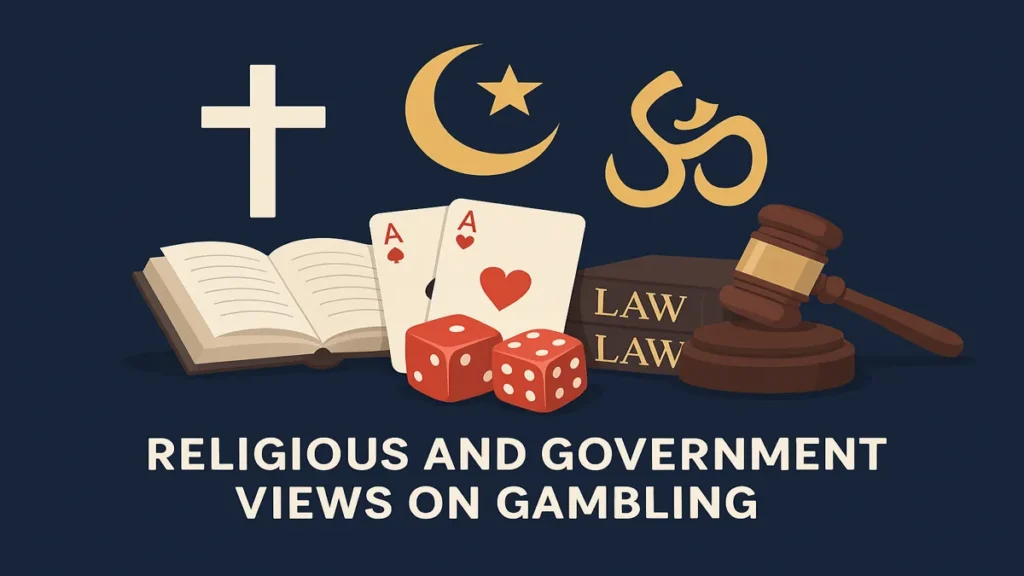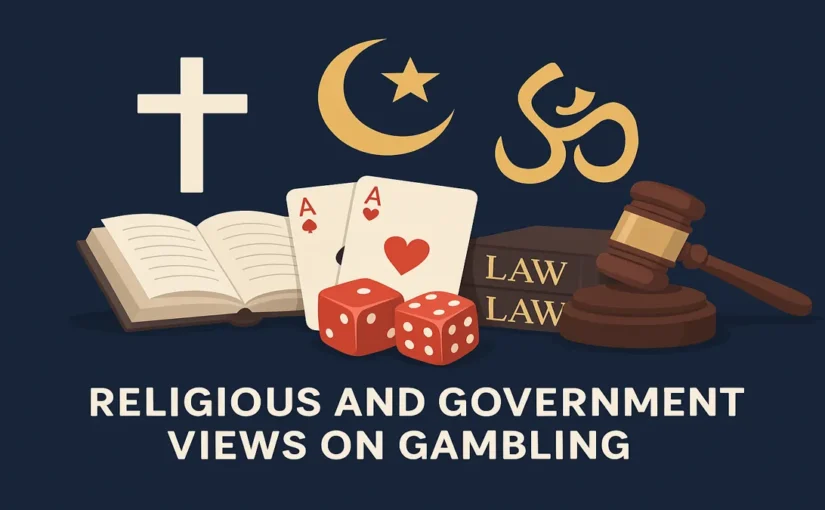The religious and government views on gambling have varied widely throughout history. While some considered gambling a moral failure, others treated it as a means of economic growth. This post explores how major religions and governments have responded to gambling over the centuries.

Religious Views on Gambling
How religions have morally judged gambling across time
Religious institutions have played a major role in shaping society’s stance on gambling. Most traditional religions have historically viewed it as a moral and spiritual threat.
Christianity
Gambling has often been condemned in Christian teachings. Many Protestant denominations consider it a vice linked to greed and idleness. Catholicism has also disapproved of gambling, though some tolerance exists for low-stakes charitable games.
Islam
Islam strictly prohibits gambling under the term “Maisir”, citing its corrupting nature. According to the Quran (Surah 5:90), gambling leads to sin and distracts believers from prayer.
Hinduism
In Hindu texts like the Mahabharata, gambling is portrayed as destructive to families and honor. While not explicitly forbidden in all contexts, it is discouraged as unethical behavior.
Judaism
Jewish law traditionally disqualifies frequent gamblers from giving legal testimony, emphasizing their detachment from productive contribution.
Governmental Approaches to Gambling
From criminalization to regulation and profit
Government responses to gambling have ranged from total bans to full-scale legal industries.
Ancient and Medieval Periods
Ancient China and Rome oscillated between banning and tolerating gambling, depending on social pressures. In medieval Europe, monarchs sometimes outlawed gambling during crises but allowed it during festivals.
Modern Era
- France and Italy developed early legal gambling houses in the 18th century.
- The U.S. alternated between bans and state-regulated casinos.
- Singapore and Macau built highly controlled gambling economies for tourism and revenue.
Governments often began opposing gambling but later shifted toward regulating it as a tax-generating industry.
Why the Conflict Still Exists
The clash between faith and fiscal strategy
The religious and government views on gambling still clash today. Religious groups worry about addiction, broken families, and moral decay. Governments, meanwhile, recognize gambling’s potential for revenue and tourism. This tension drives ongoing policy debates worldwide.
Gambling Between Morality and Money
The history of gambling is a reflection of competing forces—moral guidance and economic gain. While religions have urged restraint, many governments have embraced control. Understanding these perspectives helps us see why gambling remains a controversial yet global phenomenon.society.
